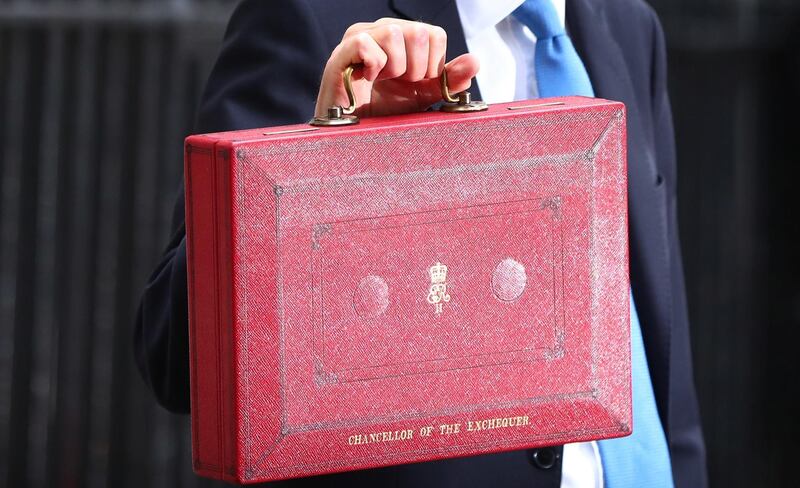Britain’s Chancellor of the Exchequer, or Finance Minister, raised public spending as he unveiled the UK’s 2018 budget on Monday, bidding to convince his divided Conservative Party to back his plans to manage growth through the threats of Brexit.
In the last budget speech before Britain exits the European Union next year, Philip Hammond said that austerity, a spending policy designed to reduce national debt implemented after the global financial crash, was coming to an end.
“We have reached a defining moment on this, long, hard journey, opening a new chapter in our country’s economic history, where we can look confidently to the future.
“I can report to the British people that their hard work is paying off and the era of austerity is finally coming to an end,” he told parliamentarians.
Mr Hammond said the drop in Britain’s borrowing between now and the 2022/2023 financial year had allowed spending to increase. According to the Office for Budget Responsibility, borrowing was forecast to be £18.5 billion lower for the same period than predicted in March this year.
Britain’s budget deficit is now at around 2 per cent of GDP in comparison with 10 per cent in 2010 when the Conservatives came to power following a decade of spending cuts focused on welfare. By the 2023/2024 financial year, the deficit is forecast to be down to 0.8 per cent.
The chancellor said he would give an extra £2bn to mental health services as well as confirming a previous government pledge to provide an extra £20.5bn for the NHS over the next five years.
Other notable increases included an extra £1bn of funding to the defence budget to boost cyber capabilities and anti-submarine warfare capacity and £160 million for counter terrorism police funding in 2019 and 2020.
Leader of the opposition Jeremy Corbyn accused Mr Hammond of delivering broken promises, referencing a speech made earlier this month by prime minister Theresa May, who said austerity was “over” rather than “coming to an end”.
Socialist Mr Corbyn, who has promised to dramatically increase public spending if elected, is currently tied with the Conservative Party in the polls.
Meanwhile, sterling slipped close to a near two-month low against the dollar on Monday amid ongoing uncertainty about Britain’s likelihood of reaching a trade agreement with the world’s largest trading bloc.
The pound was valued at $1.2817 and failed to improve against the euro since last week, trading flat at €1.126.
Despite planning to have a deal agreed by the autumn, Brussels and UK Prime Minister Theresa May’s government are still at the negotiating table trying to make progress on major sticking points such as the Irish border.
During his budget speech, Mr Hammond said he was allocating an extra £500m to prepare for a no deal scenario.
The chancellor had previously warned rebellious Brexiteers in his party who favour leaving that the spending increase will be dependent on London agreeing a Brexit deal with the EU before March 29, 2019. In the event of a “no-deal” divorce, an emergency budget would replace the current spending plans.
_______________
Read more:
UK's new Brexit 50p leaves Britons less than enthusiastic
Brexit no-deal seen shaving 1.6 points off UK growth next year
OPINION: In Ireland, and Europe at large, housing is the big issue
_______________
Speaking to the BBC on Sunday, Mr Hammond said if no agreement was reached "frankly, we'd need to have a new budget that sets out a different strategy".
But on Monday Mrs May seemed to contradict her minister when she said that spending announcements in the budget would go ahead even if Britain leaves without a deal.
“We’ve been clear that people need to know that their hard work has paid off and that the austerity that followed the financial crash is coming to an end. That’s why we are focused on delivering irrespective of Brexit, starting with today’s budget which locks in the progress we have made and sets us on a path for the spending review, where we will set out our long-term approach.
"All of the spending commitments that the Chancellor will set out today are funded irrespective of a deal," the prime minister’s official spokesman said.







